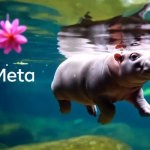By The Malketeer
Are You Prepared For What Comes Next?
The phenomenal rise of AI search engines is about to turn the world of marketing on its head.
As OpenAI, the company behind ChatGPT, unveils its new search engine, the implications for businesses, marketers, and even Google itself are profound.
The balance of power is poised to shift from performance marketing back to the fundamentals of brand building.
The Challenge to Google’s Dominance
OpenAI’s announcement is no shock to the system—AI search engines like Perplexity have already been around, proving that AI can challenge traditional search paradigms.
But the entry of a company as formidable as OpenAI into this space signals a potential seismic shift.
Despite their partnership with Bing and limited access to the web, AI tools like ChatGPT have struggled with accuracy, often returning flawed or false results.
Yet, the promise of AI search lies in its speed and quality of results.
Google’s dominance in search is partly due to its integration of AI overviews and ads, which keep users within its ecosystem.
This model has frustrated publishers by limiting traffic and monetisation opportunities.
OpenAI’s vision, however, promises to enhance user experience by prioritising high-quality content and offering a conversational interface that fosters engagement.
In essence, AI search engines aim to reduce the clutter and present only the most relevant results.
Unlike traditional search engines with endless pages of results, AI search is concise and context-driven.
Google‘s real worry, however, isn’t just about fewer results—it’s about losing its role as the go-to platform for search.
The Fragmented Path to Purchase
Today, search journeys are no longer linear.
Consider this: you’re planning a trip to Rome, and your research takes you through TikTok, YouTube, and various social media platforms.
Content from influencers shapes your choices, but when it comes to booking that restaurant or hotel, you’re forced back to Google because TikTok and YouTube lack direct transaction capabilities.
Google’s problem is that it’s increasingly becoming just another stop along a fragmented journey.
The initial spark for a search—whether it’s a social media post, an email, or a TV ad—often starts elsewhere.
As AI search integrates more deeply with these triggers, it could eliminate the need to “Google” anything at all.
Imagine seeing an ad on TV for dog food, and with a voice command to your TV, you can instantly search for and order it from the cheapest retailer.
This is the future Google must prepare for.
Adapting to a World Where Google is a Legacy Technology
AI-powered search has the potential to exist wherever the spark for a search originates—on your social media feed, on your TV screen, in your email, or within your favorite app.
The convenience of being able to search and transact without ever leaving the platform you’re on is a serious threat to Google’s current model.
Platforms like TikTok or Facebook could use AI search to prevent users from ever leaving, retaining them within their ecosystems.
Historically, Google has been the starting point for search, but this position could quickly become a relic of the past.
The world has moved on from the days when Google was the undisputed king of search.
If AI search integrates successfully across platforms, Google’s role could diminish, and its value proposition could start to fade.
The Return of Brand Marketing
For years, Google’s search ads have driven a performance marketing frenzy, where brands are locked in a constant bidding war for top search results.
But in an AI search world, marketers must return to fundamentals.
Mental and physical availability will once again take centre stage.
The key to winning in this new landscape will be building brand recognition and making sure you are present at the moment of inspiration.
If your potential customer is inspired by a TikTok influencer, a YouTube walkthrough, or a TV commercial, how do you ensure your brand appears in the AI-powered search results that follow?
Contextually relevant advertising, publicity, and brand-building efforts will matter more than ever.
For example, a TikTok influencer could drive traffic directly to a product page without the need for a search engine at all.
Preparing for the Future of AI Search
The rules of engagement are changing.
Marketers must adapt to the AI search era by doubling down on brand-building strategies that focus on visibility, engagement, and relevance.
You need to be wherever the inspiration strikes.
Be prepared to play a long game, where the power of your brand and its ability to inspire action is what ultimately drives success.
In a world where Google might no longer be the default, are you ready to redefine how you connect with your audience?
It’s time to prepare, innovate, and embrace the new frontier of AI search.
The future of marketing is here. Are you prepared?
MARKETING Magazine is not responsible for the content of external sites.










